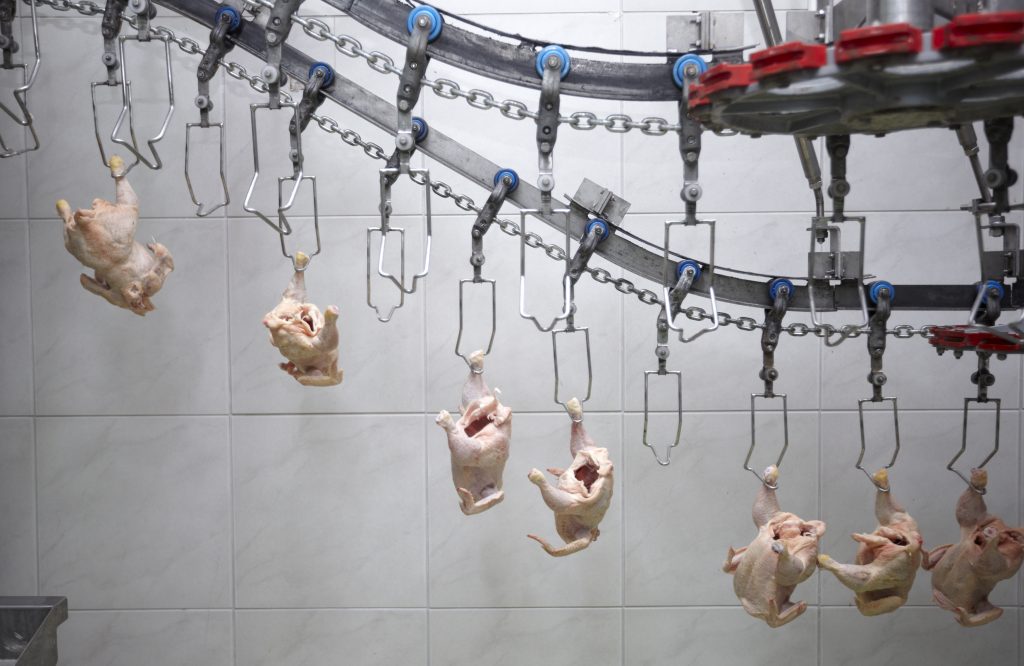Current predictions estimate that by 2050 the world’s population will be just under 10 billion. According to a Food and Agriculture Organization (FAO) report, during this time the average amount of meat consumed by individuals on earth will increase. These numbers might be the reason that two of America’s major meat producers are expanding their facilities.
This week Tyson and Foster Farms have both announced that they are investing money in order to expand their facilities to become more economically efficient. This will allow them to produce a greater amount of produce, whilst keeping the prices down for consumers.
By 2050 it’s projected that we’re going to struggle to feed the population on earth. It might seem like large meat companies becoming more efficient in their production is the answer to potentially worldwide hunger in 30 years time. However, simply attempting to meet meat demands is a shortsighted view that doesn’t tackle the overall problem; that we’re too heavily reliant on livestock to feed people.

Increasing the productivity of livestock farming, through changes to facilities or genetically modified animals will not solve the sustainability problems of livestock farming. Livestock are responsible for a greater amount of greenhouse gas emissions than the entire transport industry. Additionally, calorie for calorie, the amount of water and land required is for meat and dairy production substantially greater than if the world ate an entirely plant-based diet.
Despite the fact that reducing or eliminating animal products is becoming popular in the western world, with 6% of North Americans now identifying as vegan, the demand for meat rises globally. Increased class divisions, allowing the few to have a large percentage of wealth, has meant that those who do consume meat have an increased appetite for the luxury product. What’s more, developing countries, particularly in Asia, are experiencing an increase in the personal wealth of many people. Unfortunately this has resulted in a higher demand for western-style foods, which are animal product reliant, and a move away from traditional asian diets which include a greater deal of plant foods.

The fact that these meat suppliers are able to expand may seem like good news for the meat industry, but it’s not good news for the planet. If livestock farming continues to grow, the world may face a food crisis like never before. There will be very few people who actually benefit from these kinds of expansions, and even if they benefit financially they are still putting their health and the world around them at risk.
Expansion of meat producing facilities in order to keep up with global demand may appear to solve a problem, but it does little more than contribute heavily to a whole host of impending crises.
[/et_pb_text][et_pb_social_media_follow _builder_version=”3.0.53″ saved_tabs=”all” link_shape=”circle” url_new_window=”on” follow_button=”on” background_layout=”light” global_module=”4820″] [et_pb_social_media_follow_network social_network=”facebook” skype_action=”call” url=”https://www.facebook.com/livekindlyco/” bg_color=”#3b5998″]

